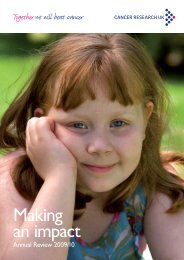Cancer Research UK Annual Review 2011/12
Cancer Research UK Annual Review 2011/12
Cancer Research UK Annual Review 2011/12
You also want an ePaper? Increase the reach of your titles
YUMPU automatically turns print PDFs into web optimized ePapers that Google loves.
<strong>Annual</strong> <strong>Review</strong> <strong>2011</strong>/<strong>12</strong> | 13<br />
Each tumour has its own individual<br />
story, written within its genetic faults.<br />
But only a few of those faults fuel its<br />
growth and spotting these “drivers”<br />
is extremely difficult.’<br />
What did you discover<br />
‘We discovered 10 different<br />
subtypes of breast cancer, identifying<br />
several genes that make tumours<br />
grow. Our research has found a way<br />
to reclassify breast cancer, showing<br />
that there are many more forms of<br />
the disease than had been described<br />
before.’<br />
How will this improve<br />
diagnosis and treatment<br />
for people with breast cancer<br />
‘This research could revolutionise the<br />
way women with breast cancer are<br />
diagnosed and treated in the future,<br />
particularly for certain types of breast<br />
tumours that are hard to tackle.<br />
Knowing what type of<br />
breast cancer I had helped<br />
doctors choose the right<br />
treatment for me. I didn’t lose<br />
my hair or feel as sick as I<br />
did the first time I had breast<br />
cancer. I hope this important<br />
study will mean that more<br />
women will get more specific<br />
treatment and experience<br />
fewer side effects.<br />
Lorraine Hill took part in a trial<br />
we funded to improve breast<br />
cancer treatment.<br />
Our work will help doctors more<br />
accurately predict a tumour’s<br />
response to treatment, and whether<br />
it’s likely to spread to other parts<br />
of the body or return. This means<br />
more women will benefit from drugs<br />
that are tailored to their specific<br />
breast cancer.<br />
We now need to carry out more<br />
research to find out how each<br />
tumour subtype behaves so we can<br />
decide on the best way to tackle<br />
each of the 10 types of breast cancer.’<br />
cancerresearchuk.org


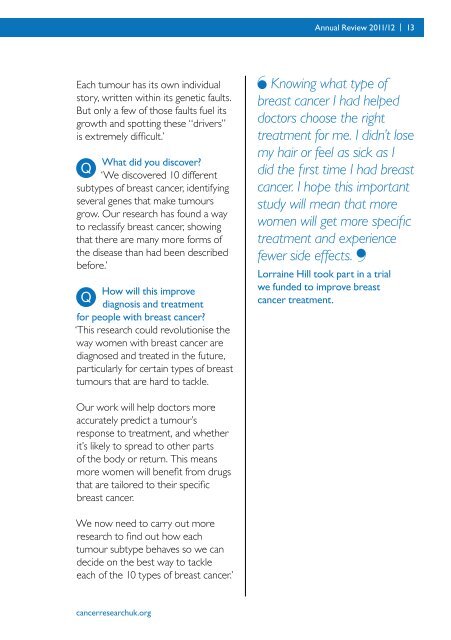

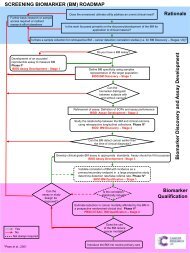
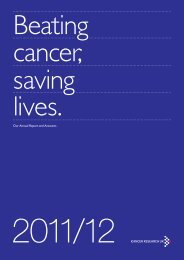
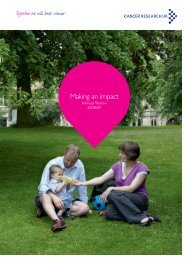
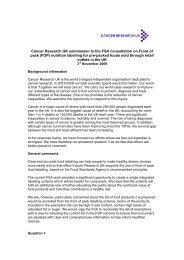
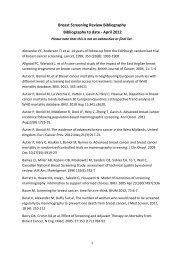
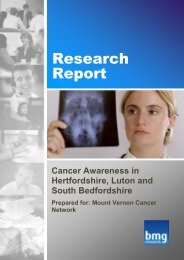
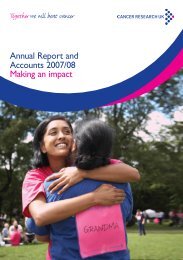


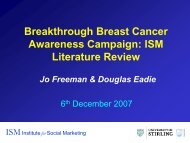
![[PDF] Cancer Research UK's strategy 2009 - 2014](https://img.yumpu.com/29239422/1/184x260/pdf-cancer-research-uks-strategy-2009-2014.jpg?quality=85)
